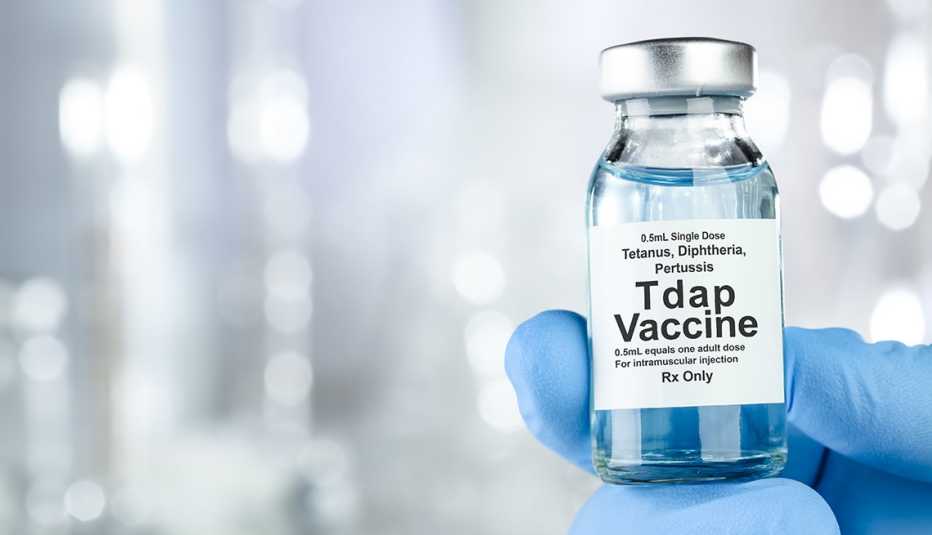AARP Hearing Center


When you’re at the doctor for your annual wellness visit, they’ll take your vital signs, talk to you about your health habits and maybe order blood tests, too. But there’s another discussion you should have at that routine visit: Am I caught up on my vaccinations?
“The older you get, the more important it is to make sure you’re up to date with your vaccines, especially if you have underlying heart or lung disease, which comes with a greater risk for severe infection. We have these wonderful tools to keep us healthy, and we need to be using them,” says Linda Yancey, M.D., an infectious disease specialist at Memorial Hermann Health System in Katy, Texas.
And one of those important vaccines is Tdap.
Here’s what you need to know about the Tdap vaccine, including how it protects you and loved ones around you (like the grandkids) and when you need to roll up your sleeve to get it.
What is the Tdap vaccine?
Tdap stands for tetanus, diphtheria and pertussis. These are all illnesses that can be pretty brutal, but ones that many people today will no longer see in their lifetimes because of vaccines. According to the Centers for Disease Control and Prevention, these are the risks each illness brings:
Tetanus: An infection of the bacteria clostridium tetani, tetanus can enter your body through a contaminated cut, wound or burn. Once the bacteria course through your system, you can develop symptoms such as muscle stiffness, including lockjaw, trouble swallowing, seizures and cardiovascular complications like changes in your heart rate and blood pressure.






























































More on Health
What to Know About The COVID BA.2.86 Variant
The new strain has health experts concerned8 Things to Do at 50+ to Help You Live Longer
It’s never too late to make small changes to improve your health
The Shots You Need After 50
Are you up to date on all the recommended vaccines?